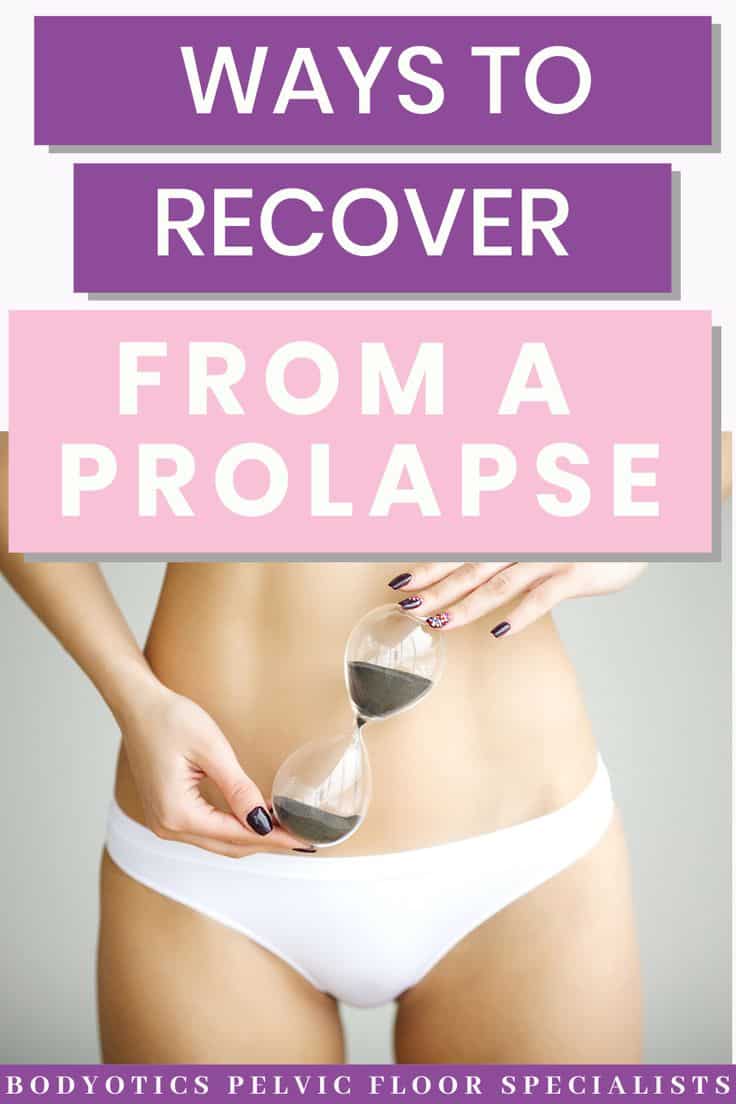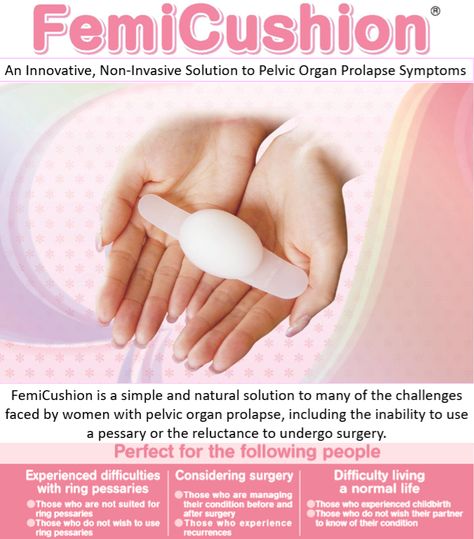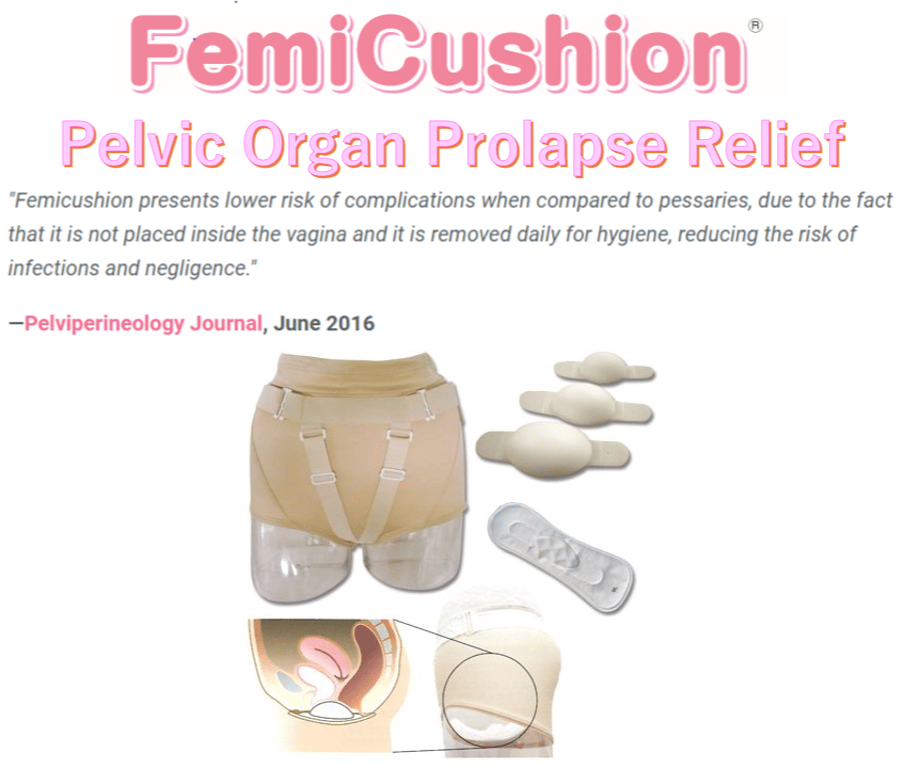Should You Discuss Sexual Problems With Your Doctor
If many women have problems talking to their partners about sex, isn’t it even more difficult for them to broach the subject with their doctors? To complicate things even further, doctors are often uncomfortable about discussing sex and are rarely well trained to do so. Adding incontinence to a conversation may make both a woman and her doctor even more reluctant to pursue further discussion.
To illustrate what a significant problem this is, interviews with 324 sexually active women found that only 2 women had volunteered information about having incontinence during sex. However, when specifically asked about this symptom, 77 additional women acknowledged that they had incontinence during intercourse.
Patients and doctors need to do a better job communicating about incontinence and sexuality. If your doctor doesn’t ask about incontinence, it is important for you to bring it up if there is a problem. If your doctor seems uncomfortable with the subject, ask for a referral to someone who regularly deals with incontinence. If you are having a problem with incontinence and sexuality, more than likely you will need to bring this up as well. If your doctor is not equipped to discuss this with you, ask for the name of a knowledgeable therapist who can help.
If your doctor doesn’t know such specialists, make an effort to find someone on your own. The important thing is to get what you need. You’re not alone with this problem.
Surgical Treatment For Prolapse Bladder
The patient is frequently discharged from the hospital the same day as the procedure. It normally takes four to six weeks for a person to recover completely.
Biofeedback is another procedure for prolapsed bladder. Muscle activity in the vaginal and pelvic floor is monitored using a sensor. Exercises to strengthen these muscles can be recommended by the doctor. These exercises will help you strengthen your muscles and ease some of the symptoms of a prolapsed bladder. The sensor can track muscular contractions during the exercises, allowing the doctor to see if the exercises are beneficial to the targeted muscles.
Another treatment option for a prolapsed bladder is electrical stimulation. A probe can be used to target specific muscles within the vaginal canal or on the pelvic floor by a clinician. The probe is connected to a device that measures and sends small electrical currents to the muscles to contract them. Muscles are strengthened by these contractions. Magnetically stimulating the pudendal nerve from outside the body is a less intrusive sort of electrical stimulation. This stimulates the pelvic floor muscles, which may aid in the treatment of incontinence.
Using Alternative Medicine For Interstitial Cystitis
Due to the lack of supporting research, its too soon to recommend alternative medicine for interstitial cystitis. If you experience any symptoms of interstitial cystitis , its important to talk to your healthcare provider before using any type of alternative treatment.
Keep in mind that alternative medicine should not be used as a substitute for standard care. Self-treating a condition and avoiding or delaying standard care may have serious consequences.
Also Check: Parkinson’s And Bladder Control
Treatment For Asymptomatic Bladder Prolapse
If you have no symptoms of bladder prolapse, you may not need treatment. This may be the case with stage 1 or stage 2 prolapse. In fact, you may not be aware of the bladder prolapse at all. It may be picked up by your GP during a routine examination, such as during a cervical screening test.
Lifestyle changes and physiotherapy are the key aspects of managing such cases. There are things you can do to help prevent the condition from getting worse, which may include:
- weight loss
- correction of position when sitting on the toilet
- avoiding heavy lifting
- pelvic floor exercises, which have been proven to reduce the symptoms of an early stage bladder prolapse and prevent any worsening
- seeking treatment and management for chronic cough and lung disease.
Seeing a pelvic floor physiotherapist is always recommended so that they can assess your pelvic floor function properly and show you the correct technique for doing pelvic floor exercises. The best published evidence supports supervised pelvic floor muscle exercises for the management of prolapse and urinary incontinence.
Herbal Treatments For Abdominal Organ Prolapse

Herbs take on a supportive role when working with bladder and abdominal organ prolapse. Herbal remedies can be used to prevent or treat infection, bring increased circulation to the area and to help tone and vitalize lax genitourinary organs. Herbs can also be used to support hormonal health especially for postmenopausal women and those in their childbearing year.
Preparations most suited for pelvic organ prolapse include Sitz Baths, Herbal Teas and Tinctures. However suppositories and salves or ointments are used by many.
The herbs I reach for the most when working with abdominal organ prolapse and bladder prolapse are:
Our Lady’s Mantle
One of my favorite womens herbs. Ladys Mantle is an astringent and anti-inflammatory herb with an affinity to the reproductive and genitourinary system. Its use is known to tone, strengthen and rejuvenate hollow organs in the body, including the bladder, colon and uterus. It has a strong reputation as a womens rejuvenative herb and seems especially useful when there has been trauma to the pelvic organs.
Partridge Berry
Blue Cohosh
Indicated for abdominal organ prolapse, Blue Cohosh has an ability to increase the tone of lax abdominal organs and the uterus. It is especially useful when there is a heavy deep aching feeling in the legs and pelvis. Blue Cohosh may be helpful with mild pelvic inflammation and a dragging sensation in the pelvis. Small frequent doses are best.
Red Raspberry
False Unicorn Root
Horsetail
True Solomons Seal
Read Also: Bladder Infection Symptoms No Infection
Pelvic Organ Prolapse Is Common
With regard to pelvic organ prolapse, Dr. Mahajan says its very common and often does not require treatment. About 40 percent of women ages 50 to 79 have some form of prolapse, according to the Womens Health Initiative.
The causes of pelvic organ prolapse are complex. Its often influenced by genetics, race, aging, pregnancy, smoking and obesity.
Some women may need surgery if prolapse blocks urination or causes discomfort. But if it doesnt bother you, we just watch it, Dr. Mahajan says.
How Common Is A Cystocele
A cystocele is common. Experts estimate that nearly half of women who have given birth have some degree of pelvic organ prolapse.1 However, many other women with the condition do not have symptoms or do not seek care from a health care professional. As a result, the condition is underdiagnosed, and it is not known exactly how many women are affected by cystoceles.
Recommended Reading: Can You Die From Bladder Cancer
Keep A Bladder Diary If Youre Urinating Too Often
If you feel that youre urinating too often, keep a bladder diary of how often you visit the restroom and how often youre drinking throughout the day, Badlani suggests. Also, keep this diary if you have episodes of urinary incontinence to show your doctor what factors might be involved in the problem.
Also Check: Bladder Control Problems At Night
When To See A Doctor About Bladder Prolapse
Painful or bleeding tissue protruding is one of the most obvious signs. However, women suffering from a very mild bladder prolapse or early-stage bladder prolapse may experience few, if any, symptoms.
If youre currently concerned you may be suffering from bladder prolapse or have experienced any combination of the symptoms above, see a doctor as soon as possible. If you believe this may be an emergency, dial 911 or visit an emergency care facility immediately.
Read Also: High Grade Bladder Cancer Recurrence
The Best Treatment For Prolapsed Bladder
Are you suffering from a prolapsed bladder? If so, Renew Wellness & Aesthetics can help you determine the best treatment for you. In addition, we offer a variety of sexual wellness services for both men and women.
If you have any questions for us, call 405-810-5944 or schedule a consultation online. We look forward to helping you get rejuvenated and feel your best!
GET STARTED
What Medications Treat A Prolapsed Bladder
- In mild cases of prolapsed bladder, estrogen may be prescribed in an attempt to reverse bladder prolapse symptoms, such as vaginal weakening and incontinence. For more severe degrees of prolapse, estrogen replacement therapy may be used along with other types of treatment.
- Estrogen can be administered orally as a pill or topically as a patch or cream. The cream has very little systemic absorption and has a potent effect locally where it is applied.
- Topical administration has less risk than the oral preparations.
Read Also: Why Is My Bladder Burning
When To Seek Help
If you are concerned you may have a prolapsed bladder and are experiencing troublesome symptoms, see your doctor. You can also visit a physiotherapist who is trained to help you with pelvic floor exercises. If you are experiencing urinary incontinence associated with a prolapse, a continence nurse adviser may help.
Protection For Bladder Prolapse & Incontinence

While youâre going through these treatments, it can be helpful to wear protection against little urine leaks resulting from your condition so you can feel as comfortable as possible. Always Discreet liners and pads come in a variety of different sizes and absorbencies to match urinary needs. Always Discreet liners and pads quickly turn liquid and odors into gel to keep you confident and comfortable throughout your day.
You May Like: How Does Oxybutynin Work For Overactive Bladder
The Emotional Load That Comes With A Pop Diagnosis Is So Heavy
So. Many. Questions. And really, no answers. Dr. Google is an evil place for women with POP .
The bulge sensation was the worst. I could tolerate a leak here and there , but the bulge sensation indicated a structural issue. Pelvic organ prolapse is an injury, with structural implications. Stress urinary incontinence can involve a structural injury of tissues, but so often it is simply a dysfunctional issue that can be remedied.
What Exercise Did I Focus On To Heal My Pelvic Organ Prolapse
I committed to my swims – I swam 2-3x/week. Swimming is my jam. So this was my happy place during this time. I never felt my POP in the lake or pool. Your internal pressures are minimized during swimming , especially when compared to upright exercises. I definitely recommend trying it with prolapse.
I committed to strengthening, focusing so much on my core and glutes – 3-4x/week.
During this time, I was doing more and more whole-body training, but I was struggling with getting specific, localized pelvic floor exercises. They are boring as anything – every woman knows this.
the perifit biofeedback device was an integral part of my pelvic organ prolapse healing.
Well, I knew I needed to do them anyways, so I turned to a biofeedback device called Perifit to help me out. Perifit is a Kegel exerciser developed in France. The magical part is that you exercise your pelvic floor muscles whilst playing a video game.
Id aim for 30 minutes every week – often nailing this in one session! Its addictive!
You can read my full review of PERIFIT here.
Don’t Miss: Bladder Cancer Surgery Recovery Time
I Continued To Work On My Pelvic Floor And Core Strength And Swam 2
Swimming was the best. I felt most normal in the water and didnt fear making my prolapse worse .
I could safely push myself in the water. I continued to do strength exercises and attended a fitness class once a week. I modified when I needed to , and was very attentive to my pressures and the bulge feeling, resting when I could and needed to. I had to focus on keeping my pelvic floor engaged through any exercise in standing.
What About Kegel Exercises
Some midwives and doctors recommend Kegels to prevent or heal prolapse problems. However, once you have a prolapse, sometimes Kegels are no longer recommended because they end up causing downward muscle pressure, making the prolapse worse. Ideally you will find a doctor or midwife that is experienced with helping women with prolapse problems who can work with you. If you do kegel exercises, you will want to be doing them correctly.
Some special physical therapists work with women with POP. They can help you learn to do exercises that will not aggravate your prolapse and make sure you do them correctly.
Don’t Miss: How To Treat A Leaky Bladder
Like A Badly Sprained Ankle That Might Never Regain Its Tensile Strength I Feared My Pop Would Live On With Me Forever I Feared For My 60
Into my third trimester, the bulge sensation became more frequent despite my best efforts with exercises. I felt it daily.
I had no other symptoms, just the bulge sensation.
My baby was super low in my pelvis through most of my second and third trimesters . I continued to have the bulge sensation and occasional little leaks with coughing, sneezing and laughing.
If You Have Signs Of Anterior Prolapse Your First Line Of Defense Is To:
- Exercises to strengthen the muscles of the pelvic floor
These exercises, also known as Kegels, strengthen your pelvic floor muscles, allowing them to better support your bladder and other pelvic organs. You can get instructions on how to execute these exercises from your doctor or physical therapist, and they can also help you assess if youre doing them correctly.
When taught by a physical therapist and reinforced with biofeedback, Kegel exercises may be most effective at alleviating symptoms. Biofeedback entails the use of monitoring devices to guarantee that youre tightening the right muscles for the right amount of time and with the right intensity. These exercises may make you feel better, but they are unlikely to reduce the size of the prolapse.
- A device that assists
Recommended Reading: Why Am I Losing Control Of My Bladder
I Returned To Pelvic Floor Physio Four Weeks Postpartum To Have My Prolapse Assessed
She diagnosed my prolapse as mild – my urethra was bulging into the vaginal area.
My PT kept telling me how good it looked for having three kids. This was helpful, but not helpful. I know that pregnancy and birth will change parts of us forever, but I would not accept that my POP was here to stay.
Id often check my POP in the morning and night, before and after activity. It didnt appear to change that much with the time of day and activity, but the sensation of it changed quite a bit. Id have hours where it was okay, and Id feel nothing at all, but the heaviness and bulge would return as the day went on. I felt it daily.
Will Sex Be Better If You Have Surgery

To answer this, a recent American study questioned a group of women before and after surgery to repair a prolapse or incontinence. About half of these women were sexually active. Before surgery, 82% of the sexually active women reported being happy with their sex lives, and after surgery, 89% of the women felt happy with their sexual relationship.
However, a study brought out a number of interesting findings. For one, the frequency of intercourse did not change following surgery. And two, while only 8% of the women had pain with intercourse before surgery, 19% noted pain with intercourse after surgery. About one quarter of the women who had a repair of a bulging rectum developed pain with intercourse. About one third of the women who had repair of a rectocele and a bladder suspension had painful intercourse. Unfortunately, the researchers did not ask these women why they were more satisfied with their sex lives even though more of them had painful intercourse.
Another study performed in Sweden may shed some light. This study found that one third of women noted an increased interest in sex after incontinence surgery, and one half of their male partners were more interested in sex. It could be that knowing the repair for the prolapse or incontinence had been addressed was enough to make the couples feel better about sex.
Read Also: Stage 4 Bladder Cancer Symptoms
Exams And Tests For A Prolapsed Bladder
For less obvious cases, the doctor may use a voiding cystourethrogram to help with the diagnosis. A voiding cystourethrogram is a series of X-rays that are taken during urination. These help the doctor determine the shape of the bladder and the cause of urinary difficulty. The doctor may also test or take X-rays of different parts of the abdomen to rule out other possible causes of discomfort or urinary difficulty.
After diagnosis, the doctor may test the nerves, muscles, and the intensity of the urine stream to help decide what type of treatment is appropriate.
A test called urodynamics or video urodynamics may be performed at the doctor’s discretion. These tests are sometimes referred to as “EKGs of the bladder”. Urodynamics measures pressure and volume relationships in the bladder and may be crucial in the decision making of the urologist.
Cystoscopy may also be performed to identify treatment options. This test is an outpatient office procedure that is sometimes performed on a television screen so the person can see what the urologist sees. Cystoscopy has little risk and is tolerable for the vast majority of people.
Tests For Bladder Prolapse
Tests that may be carried out to confirm or reject a diagnosis of bladder prolapse, depending on your symptoms, are:
- pelvic ultrasound to exclude any masses or cysts putting pressure on the bladder
- urodynamics a test of bladder function and to assess different types of incontinence
- a bladder scan to measure residual urine urine left in the bladder after emptying
- a midstream urine test to exclude urinary tract infection
- magnetic resonance imaging in some cases.
Recommended Reading: Can Overactive Bladder Cause Bloating